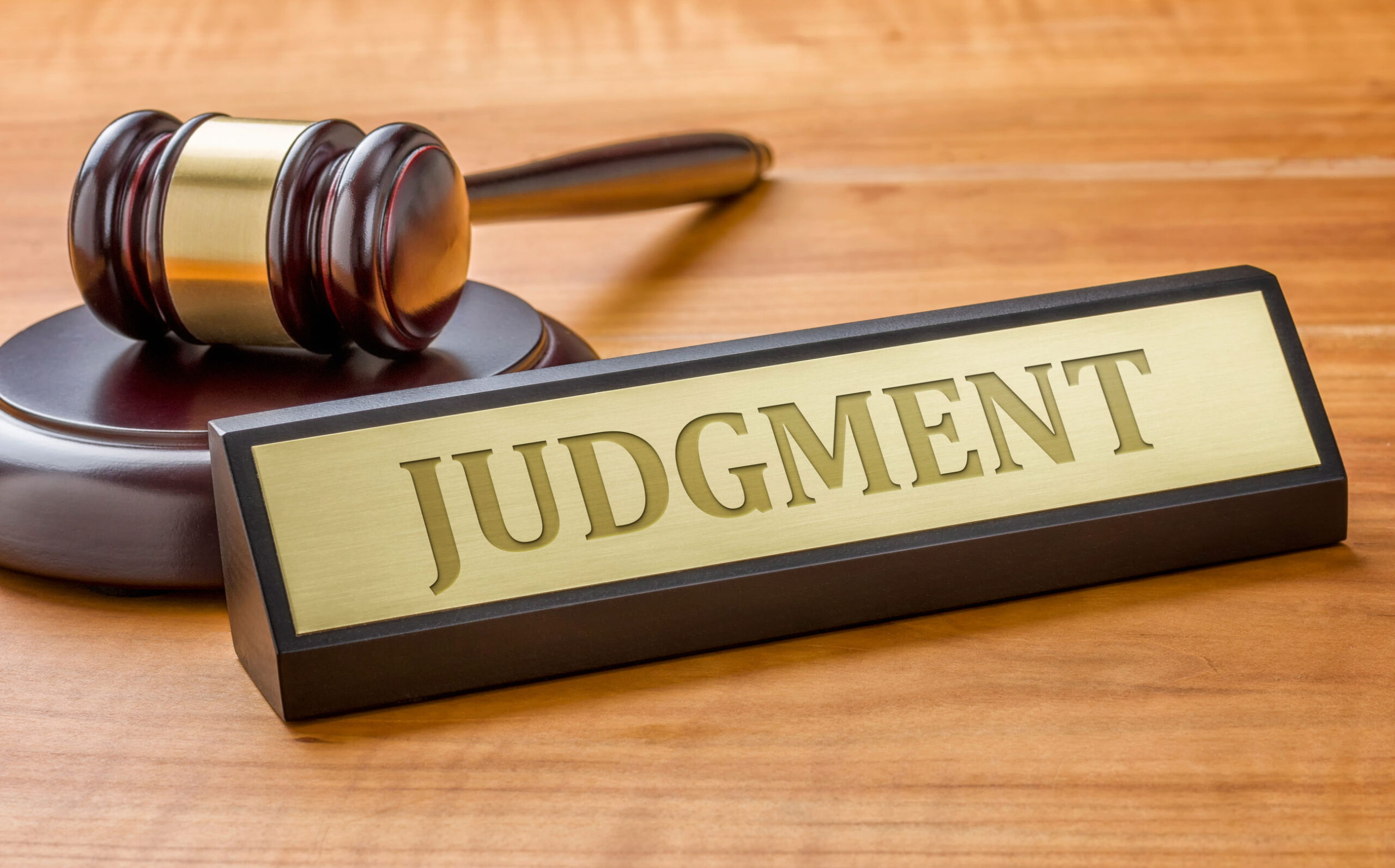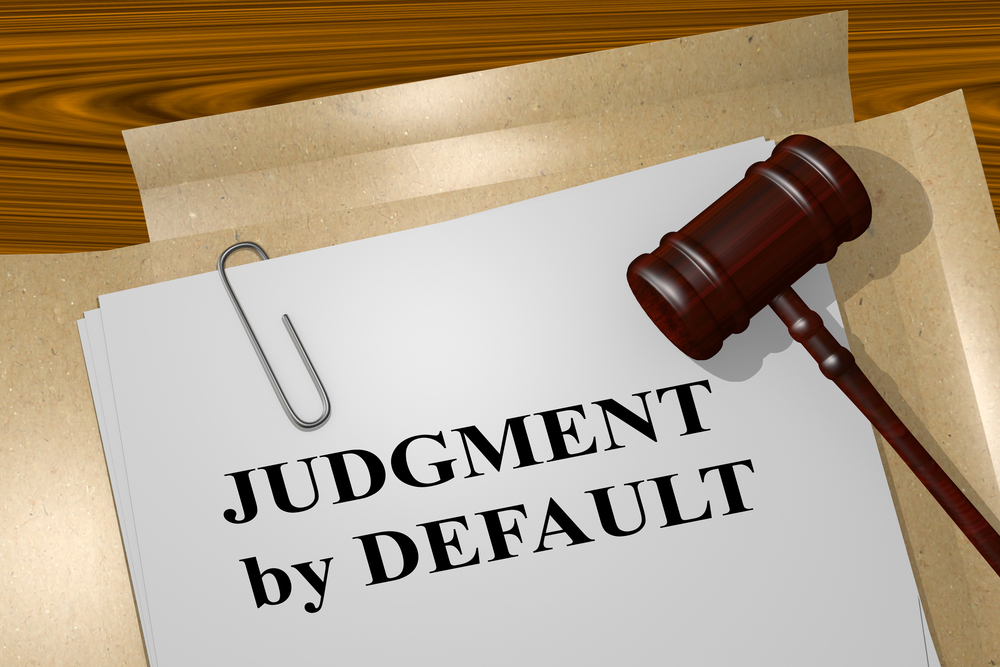By Evangelia Petsa,
An appeal by default is the regular legal means through which the party, who was tried in absentia, seeks the disappearance of the decision issued in his absence, for the purpose of a new discussion of the case by opposition. Only decisions that are final in absentia, in whole or in part, are now subject to judicial challenge, with the latter being challenged only in terms of their final provisions. On the contrary, the decisions of the Supreme Court, of the original contentious jurisdiction in the first instance, of the interim measures and of the Court of Appeal for the determination of the final price of a compensation unit are not subject to a default judgment challenge.
The character of a judgment in absentia depends, according to the opinion held by the jurisprudence, on the absence of the party at the hearing during which the judgment was issued and not on whether this judgment was based on the inference of adverse consequences of a default judgment. It remains irrelevant for the characterization of a decision as absent if the court failed to set a fee for the exercise of opposition. The decision which is issued after the rejection of a request for postponement of the hearing and the subsequent withdrawal of the party who submitted this request, even if the party had previously submitted motions, is also considered null and void. As a result, both the decision in which it was incorrectly stated that the party was tried in absentia, while he was present, and the decision that tried the party in absentia, while he was actually present, are considered absent.

The grounds that establish the remedy of default judgment, which are mentioned in article 501 of the Code of Civil Procedure, are: (a) the (complete) lack of a summons, (b) the illegal or untimely summons and (c) the assistance of counsel force majeure. Therefore, opposition to default judgment is allowed only in cases of “invalid” default judgment. If the party’s default judgment was valid, i.e. if it was summoned and in fact legally and within the deadline or there was no reason that falls under the concept of force majeure, an objection to default judgment cannot be founded and any exercise is rejected as legally unfounded.
With regard to legalization, an opposition to default judgment is actively legalized to be brought by the party tried in absentia in the first or second degree, that is, the plaintiff, the defendant, the appellant or the main intervener, as well as their universal successors. The special successors of the parties tried in absentia are also actively legalized, as long as the special succession took place after the pendency of the case. In spite of the lack of a special provision, it is accepted that in the challenge of default the winning opponent of the challenger is passively legitimized or, in case of the death of the first, his universal successors. If the objector in the trial on which the decision was issued in absentia was connected by a bond of simple joint litigation with other persons, it is not required to address his objection to his simple joint defendants nor is it necessary to summon the latter, but without excluding their summoning by the court.
A prerequisite for the admissibility of the remedy of default is the assistance of the legal interest, which consists in the need to prevent or limit the damage suffered by the defaulting party from the contested decision, and the default is the appropriate means for overturning or limiting existing damage. Any lack of legal interest, which must be present both at the time of the objection and at the time of its discussion, leads to the rejection of the default judgment as inadmissible.
In contrast to the remedy of appeal, the procedural legislator has not established an abusive deadline for the exercise of challenging default judgment. The original deadline for challenging a default judgment, which is triggered exclusively by the service of the decision, differs according to whether the party who was tried in absentia resides in Greece or abroad or is of unknown residence. In the first case, the deadline for filing an appeal is 15 days and starts from the day after the decision is served, while when the defaulter resides abroad or his residence is unknown, the deadline for filing an appeal is 60 days and starts from the following day after the last publication in a daily newspaper of the summary of the report of service of the decision to the Prosecutor of First Instance.

The admissible and timely exercise of the default judgment challenge prevents the finality of the challenged final decision, which presupposes the exhaustion of the possibility of exercising this means of appeal, as well as its enforceability, unless the decision has been declared temporarily enforceable. The filing of an appeal by default against any decision in absentia does not suspend the deadline for the appeal, while in case of rejection of the appeal by default, the filing of an appeal against the latter decision is not considered to prejudice the decision issued in absentia, against which the appeal was directed.
The filing of an objection does not create a new trial, but the old one continues and there is simply a new discussion on the same court. If the opposition to the default judgment was brought within the time limit and according to the legal formalities and the merits of the disputed reason are suspected, then the court cancels the first-trial hearing and the contested decision in absentia, orders the return of the pre-paid fee and proceeds to the examination of the dispute, after the parties return to the condition that existed before the decision that disappeared. On the contrary, if the default judgment objection was not filed legally and within the deadline, or if the validity of the reason on which it is founded is not suspected, the court rejects the objection and orders the introduction of the fee to the Public Fund. The rejection of the objection also results in the rejection of the additional, over and above the objector’s, intervention.
References
-
Κώδικας Πολιτικής Δικονομίας, Όπως κωδικοποιήθηκε με το Προεδρικό Διάταγμα 503/1985. lawspot.gr. Available here




